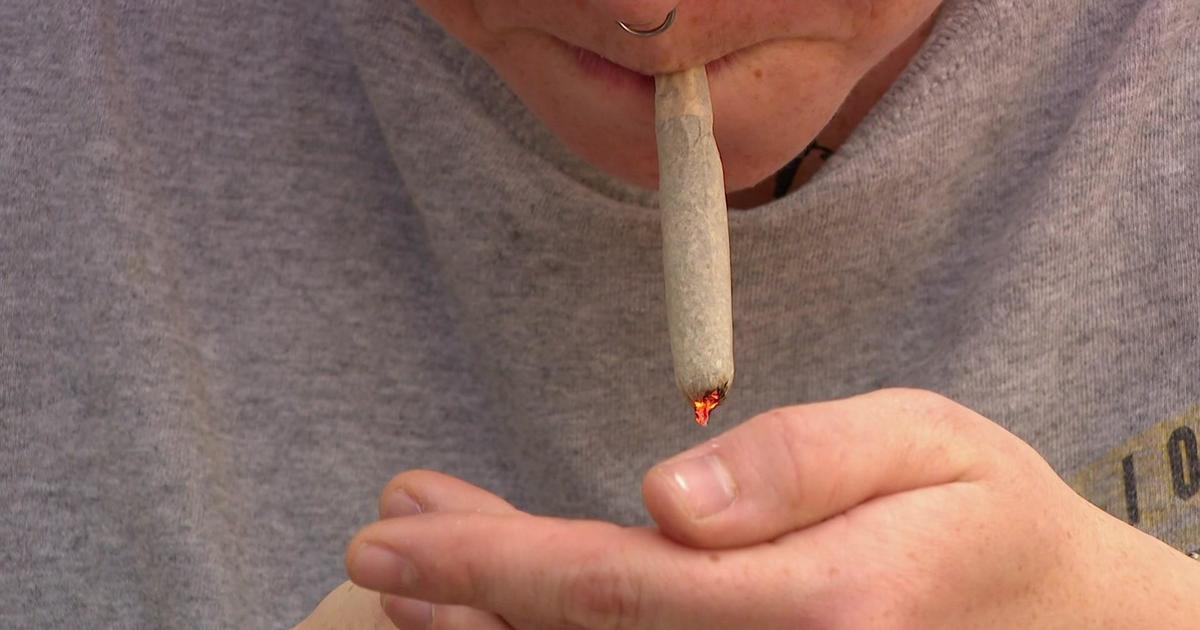How Dirty Are The Items You Touch Everyday?
MIAMI (CBSMiami) -- Gross, but true. We are covered in bacteria. Microbiologists at Nova Southeastern University say there are 10 bacteria living on you for every one cell you have.
"Bacteria are going to be found everywhere. We live with it. It's on us, in us, and around us," said Dr. Julie Torruellas-Garcia. Our daily habits spread that bacteria all over the place, some of it good, some of it bad."
CBS4 News teamed up with microbiology students at NSU to test items we touch and use every day to evaluate levels of bacteria on them.
We checked smart phone touch screens, tablets, gas pumps, ATM key pads, cross walk signals, even elevator buttons.
Dr. Torruellas-Garcia and her students at NSU checked swabs taken from all of these locations inside a laboratory.
"In all the samples, we were able to find bacteria growing," said the Torruellas-Garcia.
Each sample was tested for staphylococcus aureus and e-coli.
Dr. Juan Suarez of the Florida Department of Health in Miami-Dade County said "staph" can cause everything from skin infections to breathing and stomach problems. "E-coli can lead to bloody diarrhea, and that can eventually become a condition called Uremic Syndrome, which can be life threatening."
In our testing, NSU microbiology students found traces of Staphylococcus aureus bacteria on smart phone screens and tablet cases used by office workers.
Dr. Torruellas-Garcia said this could cause a staph infection if the bacteria were to enter someone's bloodstream.
"If people have a cut, even a mosquito bite or any type of opening in their skin, this is when they should be concerned."
How does this type of bacteria get on your phone or tablet? The answer is quite simple. "Not washing your hands properly after using the bathroom," said Dr. Torreullas-Garcia.
Traces of E-coli where found on cash machine keypads and on gas station keypads and pump handles in Miami-Dade County.
"Since there's fecal matter there, that means there could be other bacteria there that are more dangerous that could cause diarrhea," said Torreullas-Garcia.
According to Epidemiologist Dr. Nicole Cook at Nova Southeastern University, the findings should not cause alarm.
"It is something to be conscious of," she said. "About 25 percent of all healthy adults have a staph infection somewhere in their body and many of the strains of e-coli are actually needed for proper digestion and health." However, Dr. Cook said exposure to this could be a health risk for some in our area. "It can be a danger for children and the elderly, people with weakened immune systems. Those who suffer from cancer, diabetes, and HIV, for example."
While exposure could be a problem for some, it could be a benefit to those who have stronger immune systems. "When we encounter these bacteria that don't necessarily cause us harm, it's good for us because it boosts our immune system so when we do encounter one that could make us sick we're protected," said Dr. Torruellas-Garcia
All of the doctors interviewed by CBS4 agree the best prevention against getting sick from these types of bacteria is washing your hands.
"It's best to wash your hands with soap for about 20 seconds," said Dr. Cook. "Think if it as the same amount of time it would take you to hum the Happy Birthday song." Dr. Torruellas-Garcia said anti-bacterial hand sanitizers are also a good thing. "Why not? It can't hurt," she said.



